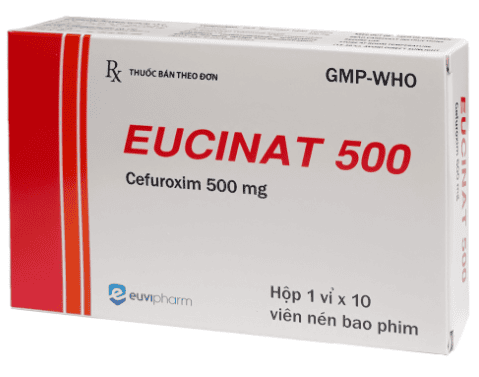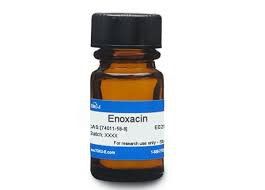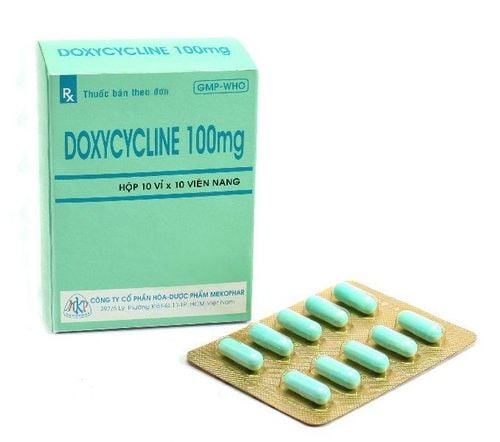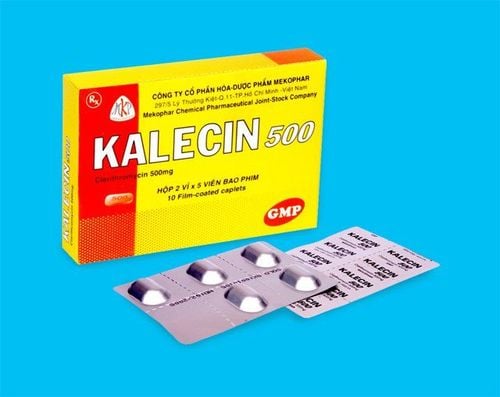This is an automatically translated article.
Markaz is classified as a group of antibiotics for respiratory tract and sexually transmitted infections. So what is the effect of Markaz on pathogenic bacteria, how to use it and how does it work? Let's find out the necessary information and notes when using Markaz 500 through the article below.
1. What is Markaz?
Markaz is an oral antibiotic in the form of film-coated tablets. Markaz is researched and formulated for use in the treatment of upper and lower respiratory tract infections, sexually transmitted diseases in men and women.Regarding the active ingredient, Markaz 500 medicine has the main active ingredient is Azithromycin, the content of Azithromycin in each Markaz tablet is 500mg.
Azithromycin is an antibiotic belonging to the Macrolide group, with a more diverse antibacterial spectrum than Erythromycin and Clarithromycin. Compared with two antibiotics Erythromycin and Clarithromycin, antibiotics of the Macrolide group have better bacteriostatic properties, but at high doses can still kill bacteria with some selected strains, such as Streptococcus pneumoniae, H. influenzae , Streptococcus pyogenes.
2. Uses of the drug Markaz
The antibacterial effect of Markaz drug is due to the active ingredient Azithromycin, which inhibits protein synthesis in bacteria. This active ingredient works by binding to the subunits (submolecular structures of bacteria) of the 50s ribosome, making the bacteria unable to participate in protein synthesis. But with low pH environment, bioavailability and function of Markaz can be inhibited. Azithromycin must move into phagocytes to be active against intracellular pathogens.
Regarding the spectrum of action of the drug Markaz can be divided into the following groups
Gram-positive aerobic bacteria: S. aureus, S. pneumoniae and S. pyogenes, Streptococcus agalactiae Gram-negative aerobic bacteria: Haemophilus influenzae, Moraxella catarrhalis, H. ducreyi, Legionella pneumophila, N. gonorrhoeae, N. meningitidis, Legionella pneumophila. Mycobacteria: Mycobacterium avium complex Anaerobic bacteria: Clostridium perfringens, Propionibacterium acnes, Peptostreptococcus spp, Prevotella Chlamydiae: C. trachomatis, Chlamydophila pneumophiae Mycoplasma: Mycoplasma pneumoniae Spiral: Borrelia burgdorferi (Treapon Lyme disease), not yet available clear research. Markaz drug has low plasma drug concentrations, but the concentration in body tissues is always high and persists for a long time. Markaz 500 is well absorbed orally, but this absorption is incomplete. With a dose of 500mg-1200mg (1-2 Markaz tablets), the bioavailability of the drug in the body is from 34-42%, the plasma concentration is 0.5 microgram/ml after 2 hours of taking the drug. Compared with the antibiotic Azithromycin administered parenterally at the same dose, Markaz has lower bioavailability and lower plasma concentrations.
Factors such as the amount of food in the stomach can influence the absorption and bioavailability of drugs taken orally. In particular, food may increase peak plasma concentrations, but these concentrations are short-lived.
Markaz drug distributes largely into tissues and body fluids after oral administration. Specifically, the active ingredient Azithromycin concentrates on polymorphonuclear leukocytes, monocytes, macrophages, and fibroblasts. Regarding the clearance of Markaz, clinical experiments show that the active substance Azithromycin is released more slowly than Erythromycin, so the concentration of Azithromycin in the cells is maintained for a long time. On the other hand, the antibacterial property of Azithromycin is only effective when it is not ionized, so the pH environment has an effect on the effect of the antibiotic Markaz.
Markaz drug is metabolised in the liver and the main route of elimination is via bile, only 6% of the dose is excreted unchanged in the urine.
3. Indications for taking Markaz
Markaz antibiotic has a broad antibacterial spectrum, so it is indicated in the treatment of the following infections:
Mild and moderate upper & lower respiratory tract infections: pharyngitis, otitis media, acute sinusitis, chronic obstructive pulmonary disease. Usually caused by H. influenzae, M. catarrhalis, S. pneumoniae, S. pyogenes. Structural skin infections caused by S. aureus, S. pyogenes or S. agalactia Infections of sexually transmitted diseases such as: chancroid caused by Haemophilus ducreyi, uncomplicated gonorrhea N. gonorrhoeae, urethritis not caused by Haemophilus ducreyi. gonorrhea . Chlamydia trachomatis infection in the urinary and genitourinary systems, pneumonia in children, ophthalmia due to Chlamydia trachomatis. Prophylactic treatment of infective endocarditis caused by Viridians hemolytic streptococci. Pertussis is caused by gram-negative bacteria Bordetella pertussis. Markaz is contraindicated in subjects with a history of hypersensitivity to azithromycin or to macrolide antibiotics.
4. Dosage & how to use Markaz
Markaz 500 antibiotic is taken orally, the patient takes the drug with a full glass of water.
Dosage: Take the drug once a day, 1 hour before meals or 2 hours after meals For adults: Dose 500mg (1 Markaz tablet) in the first day, 4 days after that take a single dose of 250mg / day For children Children: Dose of 10mg/kg on the first day, then from the 2nd to 5th day, the dose will be 5mg/kg/day or 10mg/kg/day, used within 3 days.
5. Markaz drug side effects
Most of the side effects of Markaz 500 occur on the digestive system, which can include nausea, abdominal pain, diarrhea or bloating). In rare cases, patients may experience temporary neutropenia. In patients taking high doses, Markaz 500 may affect hearing, reducing the patient's hearing. When experiencing the above side effects, the patient should ask a specialist to intervene and give an opinion on stopping the drug or treating symptoms.
6. Notes when using Markaz
Markaz or other oral antibiotics with azithromycin are not indicated in the outpatient treatment of moderate to severe pneumonia and hospital-acquired infections. For patients with damaged or impaired liver function, Markaz should be monitored and used with caution. For pregnant women, use Markaz only in case there is no alternative medicine. Although there are no known adverse effects of azithromycin in pregnant women, it should be used with caution in this population. For women who are breastfeeding, azithromycin in Markaz is excreted in breast milk, so it must be used with caution in this population. Markaz 500 is an antibiotic belonging to the Macrolide group with the main active ingredient being azithromycin. The drug is used in the treatment of moderate to severe infections. Markaz 500 is a prescription medication, under the supervision of a specialist.
Please dial HOTLINE for more information or register for an appointment HERE. Download MyVinmec app to make appointments faster and to manage your bookings easily.













